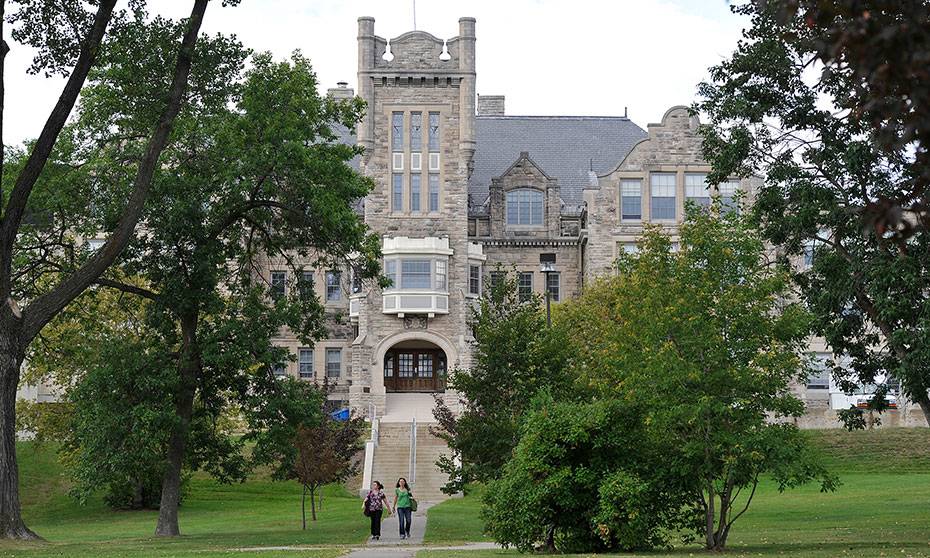
Court of Appeal cites no concern that prof ‘is a busybody or that his interest is purely academic’

The Ontario Court of Appeal said law professor Ryan Alford does have public interest standing in his challenge of a national security law that limits parliamentary privilege.
He says the appeal court’s decision is helpful for showing how different types of lawyers can demonstrate their continued engagement on an issue.
“If you go back to fundamentals, what you’re talking about is the right of the citizenry to constitutional governance, that is the basis of the genuine interest. And then the only thing I think you have to worry about at that stage is demonstrating your continuing engagement in the issue,” says Alford, associate professor at the Bora Laskin Faculty of Law at Lakehead University.
“You have to think about, tactically, how you will demonstrate to the court your continuing engagement with the issue. But I think that people should push that element — and the courts are telling us we can do this — that the genuine interest comes from the citizen’s interest in constitutional government. When you say that you are not advocating an academic or theoretical interest.”
Alford is challenging s. 12 of the National Security and Intelligence Committee of Parliamentarians Act, which “prevents parliamentary privilege from being invoked if a member of the National Security and Intelligence Committee of Parliamentarians is prosecuted for disclosing protected information,” according to the Court of Appeal’s Aug. 15 decision, Alford v. Canada (Attorney General), 2019 ONCA 657.
In 2018, the Superior Court of Justice said Alford did not have standing to bring the challenge, citing a lack of arguments that could be advanced “by those with a direct interest” as well as absence of “proper factual context.”
“While the applicant may have a special interest as an academic and acknowledged expertise (he made the same arguments before the Senate committee), the applicant has no real stake in this matter,” wrote Justice Danial Newton for the Superior Court.
But the panel of appeal court judges disagreed.
“Mr. Alford raises a serious issue, suitable for adjudication. He has demonstrated a genuine interest in this issue, having published on the topic and having participated in committee hearings relating to the legislation,” wrote Justice David Paciocco, joined in the decision by Justices Alison Harvison Young and Benjamin Zarnett. “The challenge he wishes to bring is a reasonable and effective way to bring the matter before the court. He is highly competent and able to represent the constitutional issues at stake, and clearly motivated to do so. There can be no concern that he is a busybody or that his interest is purely academic. He sees this challenge as an issue of public importance impacting on fundamental principles of democracy.”
A spokeswoman for the Department of Justice declined to comment on the appeal decision.
Although the appeal court’s decision looks “quite short,” Alford says it is significant in that it addresses the first principles of public interest. The court used a “liberal and generous” approach in considering the standing, in line with Canada (Attorney General) v. Downtown Eastside Sex Workers United Against Violence Society, 2012 SCC 45,” he says.
“It’s not as if there was a lineup at the courthouse door to litigate this,” says Alford. “Contrary to hundreds of years of precedent in every Westminster democracy, without a single counterexample, now a member of parliament who says, ‘I think my fellow members of parliament need to know about this serious abuse that I learned about’ — that person could be prosecuted? It’s really quite shocking. Unfortunately, it’s rather arcane. So, you’re in a situation where a professor is the only person who understands the portent of this — the incredibly significant transformation this affects. I felt this responsibility to bring this forward.”
Alford noted a similar decision involving Toronto lawyer Rocco Galati. For a practising lawyer, continuing engagement with an issue might look different than it would for a law professor, Alford says.
“The notion that you can turn someone’s publication record into evidence that it was a purely academic interest, I think is a theory the court squarely rejected here,” says Alford. “In my submissions I said, ‘Okay, I need to demonstrate continuing engagement with this issue, how as an academic do I do that appropriately? Do I go down to parliament hill and put it on a sandwich board? No, of course not. …. I publish, that’s appropriate to me. That’s going to vary to who the applicant is. If you are a practising lawyer, maybe it’s what you do in the OBA, or at the law society, or litigating constitutional issues associated with that issue.”